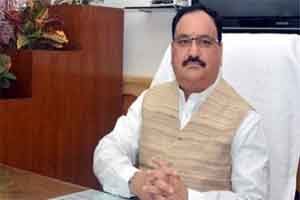- Home
- Medical news & Guidelines
- Anesthesiology
- Cardiology and CTVS
- Critical Care
- Dentistry
- Dermatology
- Diabetes and Endocrinology
- ENT
- Gastroenterology
- Medicine
- Nephrology
- Neurology
- Obstretics-Gynaecology
- Oncology
- Ophthalmology
- Orthopaedics
- Pediatrics-Neonatology
- Psychiatry
- Pulmonology
- Radiology
- Surgery
- Urology
- Laboratory Medicine
- Diet
- Nursing
- Paramedical
- Physiotherapy
- Health news
- Fact Check
- Bone Health Fact Check
- Brain Health Fact Check
- Cancer Related Fact Check
- Child Care Fact Check
- Dental and oral health fact check
- Diabetes and metabolic health fact check
- Diet and Nutrition Fact Check
- Eye and ENT Care Fact Check
- Fitness fact check
- Gut health fact check
- Heart health fact check
- Kidney health fact check
- Medical education fact check
- Men's health fact check
- Respiratory fact check
- Skin and hair care fact check
- Vaccine and Immunization fact check
- Women's health fact check
- AYUSH
- State News
- Andaman and Nicobar Islands
- Andhra Pradesh
- Arunachal Pradesh
- Assam
- Bihar
- Chandigarh
- Chattisgarh
- Dadra and Nagar Haveli
- Daman and Diu
- Delhi
- Goa
- Gujarat
- Haryana
- Himachal Pradesh
- Jammu & Kashmir
- Jharkhand
- Karnataka
- Kerala
- Ladakh
- Lakshadweep
- Madhya Pradesh
- Maharashtra
- Manipur
- Meghalaya
- Mizoram
- Nagaland
- Odisha
- Puducherry
- Punjab
- Rajasthan
- Sikkim
- Tamil Nadu
- Telangana
- Tripura
- Uttar Pradesh
- Uttrakhand
- West Bengal
- Medical Education
- Industry
Centre to eliminate malaria by 2030: Nadda

New Delhi: The Centre today set the target of eliminating malaria by 2030 after neighbouring countries like Sri Lanka and Nepal reported no deaths due to the vector-borne disease in the past several years.
"We are committed to achieving the target of elimination of malaria by 2030 which will require huge financial resources. We will effectively work with the development partners and civil society," Union Health Minister J P Nadda said.
Launching the National Framework for Malaria Elimination (2016-2030) here, the minister said 70 per cent of malaria cases and 69 per cent of malaria deaths among South East Asian Region countries, occur in India.
"The objective of the framework is to reduce the incidence of malaria to less than one case per 1,000 population per year in all states and UTs by 2024. We would ask all state governments to include malaria eradication programme in their policy matters," he said.
Quoting statistics, Nadda said more than 80 per cent of the country's population live in 'malaria transmission high-risk areas' of around 200 districts covering states like Andhra Pradesh, Chhattisgarh, Gujarat, Jharkhand, Karnataka, Madhya Pradesh, Maharashtra, Odisha, West Bengal and the seven northeastern states.
"Presently, 80 per cent of malaria is prevalent among 20 per cent of the people classified as 'high risk', although approximately 82 per cent of the country's population live in malaria transmission risk areas," he said.
Under the framework for malaria elimination, the country has been divided into three categories on the basis of annual parasite incidences and key interventions have been identified to achieve the goal, the Union Minister added.
Sri Lanka has reported no malaria deaths in the last one decade, while in Nepal no death due to the vector-borne disease took place since 2012.
Next Story


